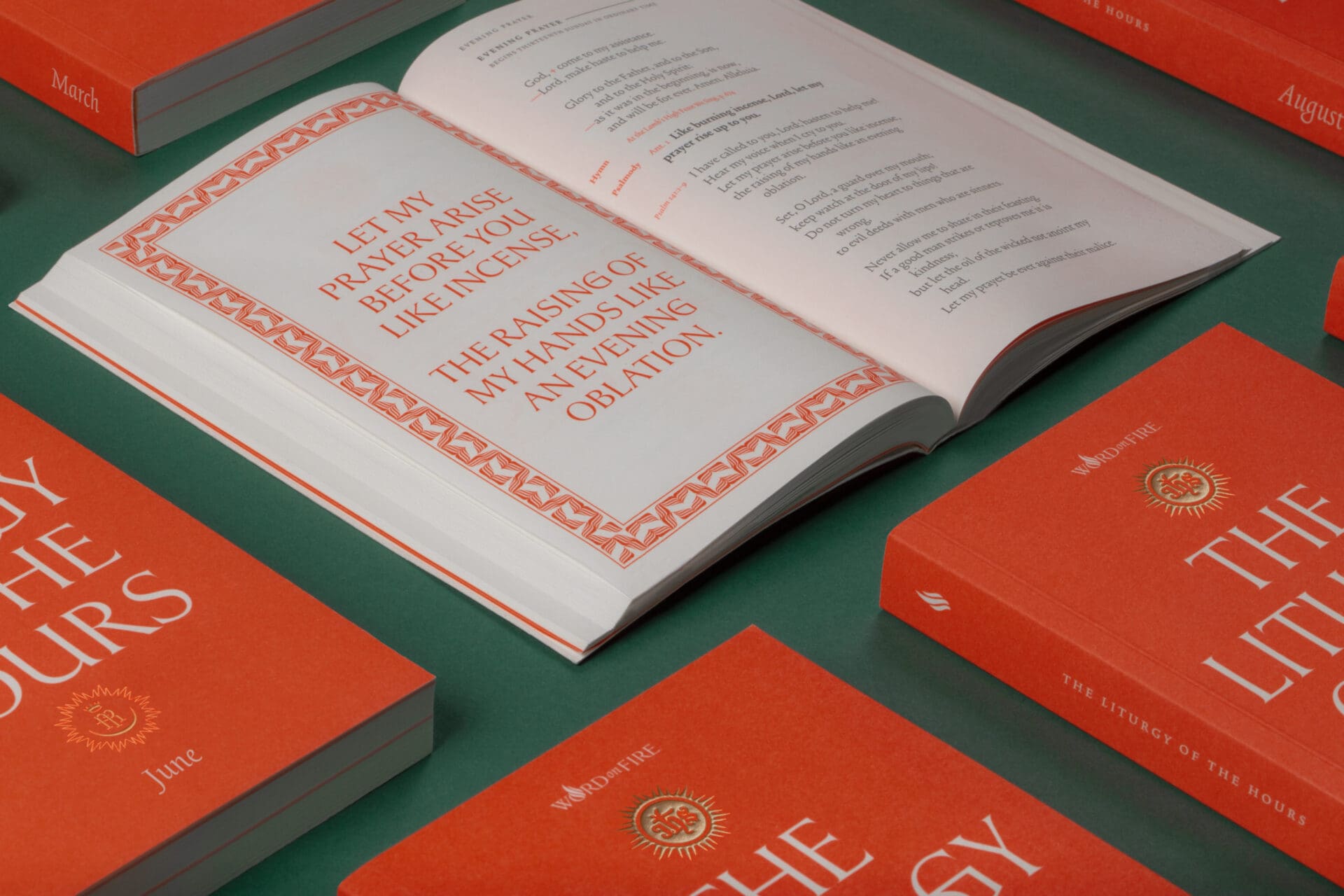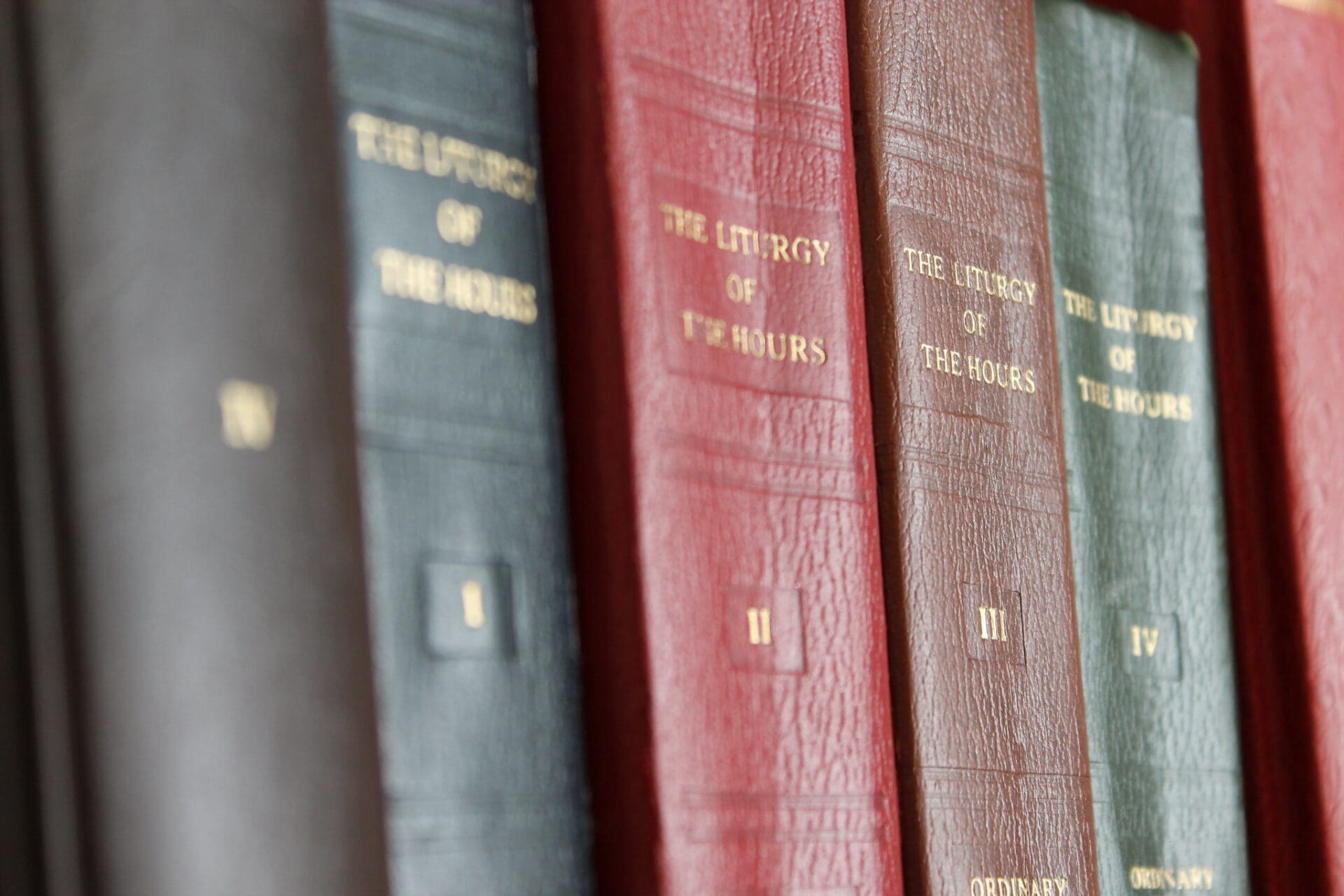Word on Fire, the multimedia evangelization effort started by Bishop Robert Barron, auxiliary bishop of the Archdiocese of Los Angeles, wants to make the Liturgy of the Hours a Catholic household name. In mid-March of this year, Word on Fire began offering a monthly subscription-based version of the Liturgy of the Hours.
In much the way that Magnificat provides monthly access to the Mass through its publications, Word of Fire is offering Catholics an opportunity to pray the Liturgy of the Hours, month by month, with the rest of the Church.
Readers who subscribe—Word on Fire is offering the service at $7 per month at this time, billing it as a “Special Founder’s Discount”—will receive the first booklet before the new month begins and receive each additional booklet in time to begin the next month’s prayers.
According to the Word on Fire website, the new service seeks to ensure a user-friendly experience for those who subscribe, noting that subscribers will receive booklets that present the prayers in a linear format (“Just read and pray. No complicated ribbon system.”), include clear instructions on which day of the liturgical calendar is which (“We take all the guesswork out of the liturgical calendar, so you’re praying the correct prayers on the right feast days and celebrations.”), and employ the tried-and-true technology of book and page (“Avoid the distractions that come with praying on screens by having a tangible, single-function, print booklet devoted solely to prayer.”).
Each prayer in the booklet, the Word on Fire website also states, “includes a hymn with a simple musical notation, making it easy to sing with others even if you have never heard the hymn before,” and each booklet contains “special artwork to mark and celebrate solemnities throughout the year, helping you to better enter the Church’s liturgical life.”
In explaining the importance of the Liturgy of the Hours, Word on Fire’s website notes that this collection of prayers “is an ancient, structured way of praying Scripture throughout the day, focusing especially on the Psalms. It hearkens back to the Jewish custom of praying at fixed hours, a practice early Christians continued. By the medieval period, monks chanted the entire Psalter, all 150 Psalms, throughout each week, and sometimes in a single day!”
“Eventually, this form of prayer became known as the Liturgy of the Hours, also called the Divine Office. It is a liturgy because, like the Mass and other sacraments, it is a public prayer of the Church, Christ’s Mystical Body, as distinct from private devotions such as the Rosary, novenas, or personal prayer.”
The website also explains that the Liturgy of the Hours is divided into five major “hours”, or times of prayer:
- Morning Prayer, also known as Lauds, prayed first thing in the morning
- Daytime Prayer, prayed sometime between mid-morning and mid-afternoon
- Evening Prayer, also known as Vespers, prayed in the early evening
- Night Prayer, also known as Compline, offered just before bedtime
- Office of Readings, the longest hour, featuring lengthy readings from the Bible, Church Fathers, or other saints, prayed at any point during the day
Subscribers will receive a booklet which contains the main part of the Liturgy of the Hours, “the core Hours of Morning, Evening and Night prayer.”
The Liturgy of the Hours is required reading—and praying—for clergy and religious, the Word on Fire website explains: they “are required to pray the five major Hours every day.” But the laity are also beginning to show greater interest in these prayers, the website notes.
“The Second Vatican Council taught that ‘the laity, too, are encouraged to recite the divine office, either with the priests, or among themselves, or even individually,’” the website states. “Recent popes have repeated this invitation. Pope St. Paul VI especially emphasized the call for families to pray the Liturgy of the Hours, saying, ‘No avenue should be left unexplored to ensure that this clear and practical recommendation finds within Christian families growing and joyful acceptance.’”
According to a letter published at the Word on Fire website, Bishop Barron emphasizes the importance of the Liturgy of the Hours to the life of faith for all Catholics, calling it “the highest and most important form of prayer outside of the Mass.”
“Praying the Psalms in unison with Christians throughout the world at set hours of the day is one of the most ancient traditions of Christianity,” he writes. “These are the prayers of Christ, the prayers of the Church.”
For more information or to subscribe, visit the Word on Fire Website: https://www.wordonfire.org/pray/.


